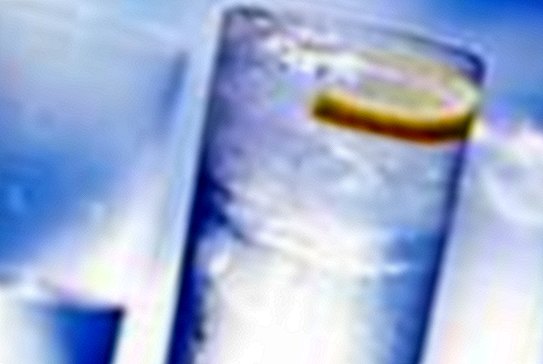The trend: fasting for health

What is fasting?
Every year on Ash Wednesday, the pre-Easter Lent begins for the Catholics. The renunciation of solid food is the purification of body and soul and should help to remember the relationship with God. In addition to this religious tradition but also for medical therapeutic reasons fasted. And more and more people are doing a fasting cure in the spring as a kind of break to find peace, relaxation and their inner balance.
In contrast to starvation, fasting means voluntary abstinence from solid foods and luxury foods such as alcohol and nicotine for a limited period of time. While fasting doctors, clinics and book authors consistently promote fasting as a healthy means of detoxification, nutritionists and scientists see such a cure quite critical.
Forms of fasting
Zero diet: In the strictest form of fasting, only 2 to 3 liters of energy-free drinks (water, mineral water or tea) are drunk every day.
Therapeutic fasting after Buchinger: The term "fasting cure" was used in 1935 by the doctor. Otto Buchinger and includes not only the therapeutic fasting (for example, in metabolic diseases) but also the preventive side of fasting for healthy. A fasting cure takes a maximum of 3-4 weeks. This includes the preparation for fasting, colon cleansing on the first day of fasting and adequate hydration (tea, vegetable broth, fruit juice and mineral water). In a build-up phase of at least three days, the energy supply is gradually increased again at the end of the course.
Modified fasting, also called protein-substituted fasting, is used in clinics under medical supervision for the treatment of massive obesity (obesity). In addition, protein, carbohydrates and fat are absorbed and supplemented by sufficient fluid (2-3 liters / day), vitamins and minerals.
In the "Whey-drinking cure", 1 liter of spa whey (enriched with protein and carbohydrates) are drunk throughout the day, supplemented by herbal and fruit teas to up to 3 liters / day. Even with this form of fasting, the degradation of endogenous protein is counteracted.
What happens in the body?
By entering saline solutions, sauerkraut juice or enemas, all digestive remains are flushed out first. Within the first three days, the body turns to "inner" nutrition, the hunger metabolism and increasingly draws its energy from the body's own fat and protein. In these three days, it can also lead to unpleasant side effects: headache, low blood pressure, skin reactions, sleep disorders, negative mood.
Are there any health risks?
With the total fasting, thus the zero diet, substantial health risks can be connected: According to the society for nutritional medicine and dietetics in Aachen the organism falls back on Muscle protein during fasting to cover its protein requirement and dismantles it. The result: the muscles dwindle and have to be laboriously rebuilt after the treatment. This muscle "depletion" can also affect the heart muscle - dangerous for people with heart disease. Even diabetics, cancer patients and pregnant and breastfeeding women should refrain from fasting in general.
Even in healthy people, fasting can have negative consequences, because the nutritional defenses weaken the body's defenses. Fasting people may become more susceptible to infectious diseases. In order to eliminate possible risks from the outset, a doctor should always be consulted before a fasting cure - regardless of the form. Longer cures - over several weeks - should also be made only under medical supervision.
Is fasting suitable for weight loss?
In case of extreme overweight, modified fasting may be useful, for example, if fast weight loss is necessary (before surgery, etc.). Fasting is under medical supervision. The muscle breakdown is contained by the daily intake of protein and the basal metabolic rate does not decrease so much.
In the past, total fasting was considered an effective method of losing weight. That is long outdated. Because after the quick success you have the lost pounds often just as quickly back on the hips and health damage in this radical cure also can not be ruled out.
Although "fasting" also leads to fat loss and to a reduction in the basal metabolic rate, the yo-yo effect is once again programmed as soon as normal eating is done. A fasting diet alone does not change the way you eat a wrong diet. It only helps to change the diet over the long term.
Does fasting help detoxify?
Those who fast, consciously refrain from meat, sweets, alcohol, and cigarettes for a while.Thus, fasting can certainly also be an impulse for a positive, healthier change in one's own lifestyle. In addition, fasting is often practiced as a form of internal cleansing that stimulates the body's natural purification and detoxification mechanisms and encourages self-healing.
However, according to the German Society for Nutrition, the term "cleansing" is scientifically unjustifiable because there is no accumulation of waste products and metabolic end products in a healthy human body. Substances that can not be used are excreted via the intestine and the kidneys with sufficient fluid intake.










